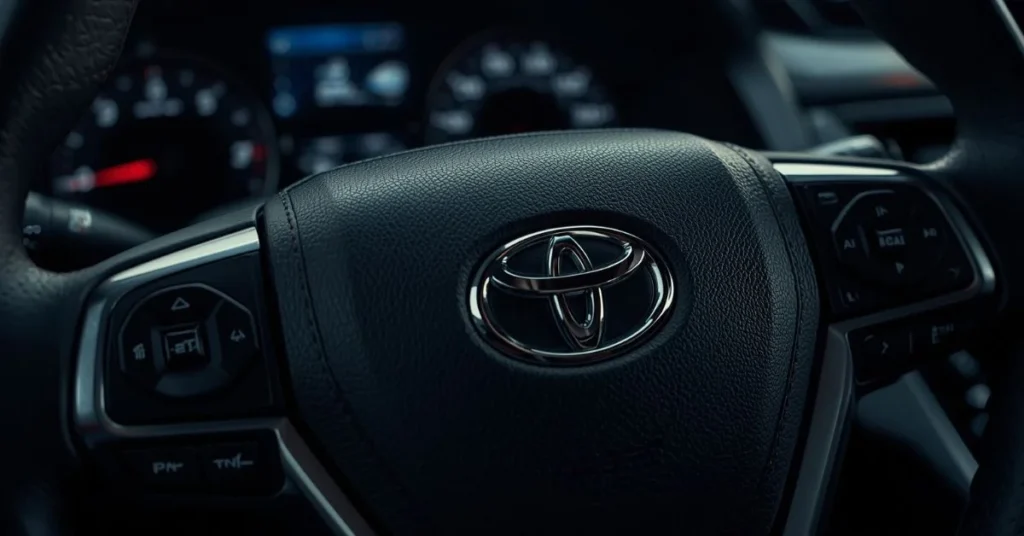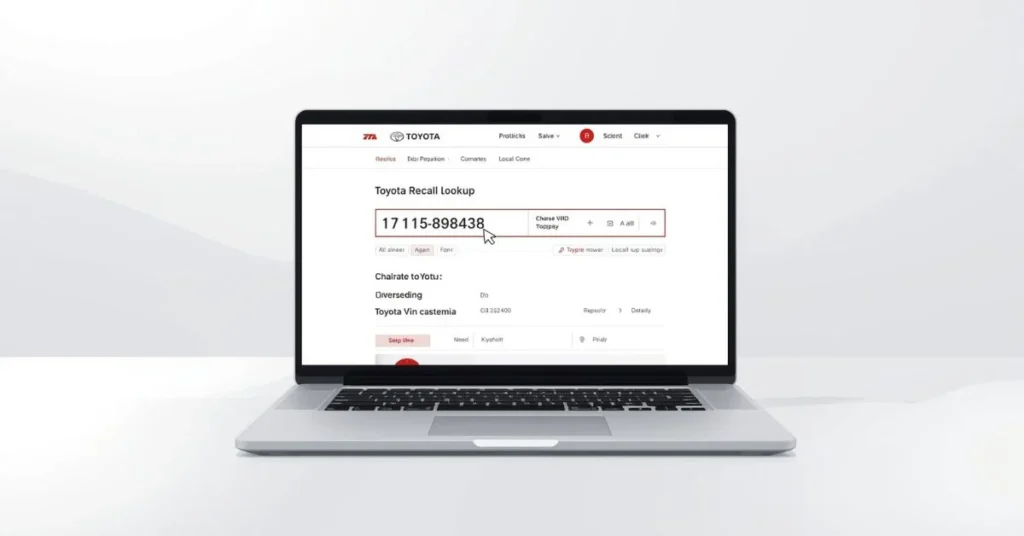Table of Contents
Toyota has announced a major recall involving approximately 162,000 pickup trucks in the United States due to a defect related to the vehicle’s multimedia display screen. According to reports, the affected screen may freeze, fail to load, or go completely black, which can prevent the backup camera image from displaying properly when the vehicle is placed in reverse.
This recall primarily affects 2024–2025 Toyota Tundra and Tundra Hybrid models. Backup cameras are a federally required safety feature in the U.S., and a malfunctioning display may increase the risk of accidents, especially in crowded areas, parking lots, or residential neighborhoods. Because of this, the issue does not meet federal rear-visibility safety standards.
Toyota has confirmed that no injuries or crashes have been officially reported in connection with this defect so far. However, the company issued the recall as a preventive safety measure after identifying the problem during internal evaluations and customer reports.
What Is the Problem With the Screen?
The issue lies within the digital display system that controls the rearview camera feed. In some vehicles, the screen may:
- Freeze on a previous image
- Fail to switch to the backup camera view
- Go completely blank without warning
When this happens, drivers may not be able to clearly see what is behind the vehicle while reversing, which significantly increases safety risks.
Modern Toyota trucks rely heavily on software-driven systems, and even small glitches can affect critical safety features. This recall highlights how important proper software performance is in newer vehicles.
Vehicles Affected by This Toyota Recall
The recall includes:
- Model Years: 2024 and 2025
- Models: Toyota Tundra and Toyota Tundra Hybrid
- Market: United States
Not every vehicle within these model years is affected. Toyota recommends that owners check their VIN to confirm whether their specific truck is included in the recall.
How Toyota Is Fixing the Issue
Toyota has stated that authorized dealerships will correct the problem free of charge. In most cases, the repair will involve a software update designed to prevent the display screen from freezing or shutting off unexpectedly.
Owners will receive official recall notification letters by mail with instructions on how to schedule service. Toyota dealers are already prepared to perform the update, and the repair process is expected to be relatively quick compared to mechanical recalls.
Why This Recall Matters for Toyota Owners
Backup cameras play a crucial role in preventing accidents and protecting pedestrians, especially children and pets. A non-functioning display reduces driver awareness and increases liability risks. This recall shows how even high-quality vehicles can experience technology-related issues, particularly as vehicles become more digitally advanced.
For owners of high-mileage or out-of-warranty Toyota vehicles, recurring electronic or mechanical problems may lead some drivers to consider major component replacement, such as engines or transmissions, rather than continued repairs.
Vehicle recalls play a huge role in keeping everyone safe on the road. When car makers discover safety issues or defects in their vehicles, they issue recalls to alert owners and offer free repairs. Toyota, being one of the top car manufacturers, really cares about customer safety and regularly puts out recalls when needed.
In this article, we’ll break down what Toyota recalls are all about, share the latest updates from 2025, and explain how you can find out if your car is impacted. Stick around to see why it’s super important to stay in the loop about recalls for your safety.

What Are Toyota Recalls?
A vehicle recall is a safety notice issued by manufacturers or the National Highway Traffic Safety Administration (NHTSA) to address defective parts or systems in vehicles that could increase the risk of accidents or harm. Toyota recalls are no exception and are done in compliance with NHTSA safety standards.
If you own an older model that needs repairs, you may also want to check our used Toyota engines and used Toyota transmissions to keep your vehicle running smoothly.
Common Reasons for Toyota Recalls
Toyota vehicles, like any others, may face recalls for a variety of reasons. Some of the most common include:
- Airbag Defects: Faulty airbags may fail to deploy or deploy incorrectly, posing a risk during accidents.
- Brake Issues: Problems such as fluid leaks or malfunctioning brake components can reduce stopping power.
- Fuel System Problems: Leaks or pump malfunctions can increase the risk of fires.
- Software Malfunctions: Errors in vehicle systems can lead to unexpected behavior, such as unintended acceleration.
- Electrical Issues: Faulty wiring or shorts can impair essential vehicle systems or create fire hazards.
These recalls are designed to proactively address safety concerns and prevent potential disasters on the road.
Toyota Vehicle Recall Models (2025)
Comparing Common Toyota Vehicle Recall Models and Issues
| Model Family | Common Recall Issues | Typical Model Years Affected |
|---|---|---|
| Corolla/Matrix | Takata airbags, engine control module (ECM) software | 2009-2013 |
| Camry | Fuel pumps, vacuum pump for brake booster, software updates | 2018-2020 |
| RAV4 | Fuel pumps, Takata airbags, suspension components | 2006-2012, 2019-2020 |
| Tacoma/Tundra | Fuel pumps, frame rust protection, rear axle shafts | 2016-2020 |
| Sienna | Power sliding doors, Takata airbags, fuel pumps | 2011-2016 |
This table provides a general overview, and specific recalls are always tied to certain VIN ranges and production dates. Always use your VIN to confirm if your vehicle is affected.
Major Historical Toyota Vehicle Recall Models
Over the years, several large-scale recalls have involved various Toyota vehicle recall models. Understanding these past events provides context on how the company handles safety issues and improves its processes. While this list is not exhaustive, it covers some of the most significant recalls.
The Takata Airbag Recall
This was one of the largest and most complex recalls in automotive history, affecting tens of millions of vehicles from numerous manufacturers, including Toyota. The issue centered on airbag inflators made by the now-defunct company Takata. These inflators could degrade over time, especially when exposed to heat and humidity, and rupture during deployment, sending metal fragments into the cabin.
Affected Toyota Models Included:
- Corolla (2009-2013)
- Matrix (2009-2013)
- RAV4 (2006-2012)
- Sienna (2011-2014)
- Yaris (2006-2012)
- Lexus models like the IS, ES, and GX
Toyota has been actively working for years to replace these faulty airbags. If you own a Toyota from this era and haven’t had the recall service performed, it is critically important to do so immediately.
Fuel Pump Recalls
Another significant campaign involved defective low-pressure fuel pumps. In affected vehicles, the fuel pump could stop operating, causing the engine to stall. If this occurred while driving at higher speeds, it could increase the risk of a crash. This recall impacted millions of Toyota and Lexus vehicles across a wide range of model years.
Common Toyota Vehicle Recall Models in this Campaign:
- Camry (2018-2020)
- Highlander (2018-2020)
- RAV4 (2019-2020)
- Tacoma (2017-2020)
- Tundra (2018-2020)
- Sienna (2018-2020)
The remedy involves replacing the faulty fuel pump with an improved part at no cost to the owner.
Unintended Acceleration Recalls (2009-2011)
This series of recalls addressed concerns about unintended acceleration in several popular Toyota models. The issues were traced back to two primary causes: pedals getting trapped by loose or incorrect floor mats and “sticky” accelerator pedals that were slow to return to the idle position. Toyota recalled millions of vehicles to modify accelerator pedals and braking systems and replace floor mats.
How to Check for Toyota Recalls

To determine whether your Toyota has an open recall, follow these simple steps:
- Visit Toyota Recall Lookup: Go to the Toyota Recall Lookup page on Toyota’s official website.
- Get Your VIN: Locate your vehicle’s unique 17-digit Vehicle Identification Number (VIN). You can usually find it on the driver’s side dashboard, door frame, or your vehicle registration documents or you can check in our website Free Vin Decoder Tool
- Enter Your VIN: Input the VIN into the lookup tool and click “Search.”
- Review the Results: If your vehicle is affected by a recall, the tool will provide details on the issue and next steps.
- Schedule a Repair: Contact your nearest authorized Toyota service center to arrange for a free repair.
It’s that easy! By taking these steps, you ensure your vehicle is safe to drive and compliant with Toyota’s safety standards.
Why It’s Important to Act Quickly on a Toyota Recall
Ignoring a recall can lead to serious consequences that go beyond just safety concerns. Here’s why acting on recalls promptly is critical:
1. Safety Concerns
Defective parts or systems make your vehicle a potential hazard for you, your passengers, and others on the road. Airbags that fail to deploy or brakes that underperform may increase the likelihood of severe accidents.
2. Prevent Long-Term Damage
Continuing to drive a recalled vehicle may cause additional wear or damage, leading to costly repairs outside the scope of the recall.
3. Legal and Insurance Implications
If you’re involved in an accident caused by a known recall issue, it might complicate your insurance claim and even expose you to liabilities. Fixing recall issues ensures your vehicle complies with safety regulations.
Conclusion
Understanding Toyota vehicle recall models is not about questioning the brand’s reliability; it’s about being a proactive and responsible car owner. Recalls are a testament to the industry’s commitment to continuous improvement and public safety. Toyota provides robust systems for notifying owners and completing repairs efficiently and at no cost.
By regularly checking your vehicle’s VIN for open recalls and promptly scheduling any necessary service, you ensure your Toyota remains as safe and reliable as the day it was built. Take a moment today to check your VIN on Toyota’s or the NHTSA’s website. It’s a simple step that provides peace of mind and keeps you, your passengers, and others safe on the road.
Frequently Asked Questions
-
Are Toyota recalls free?
Yes, recall repairs are always free of charge at authorized Toyota service centers.
-
How long does a Toyota recall repair take?
Repairs typically take 1–3 hours, depending on the complexity of the issue.
-
Can I sell my Toyota if it has an open recall?
Yes, but it’s generally better to address the recall before selling. It assures potential buyers that the vehicle is safe and underlines your responsibility as a seller.
-
Do Toyota recalls expire?
No, recalls remain open indefinitely until the issue is resolved. However, it’s wise to address recalls as soon as possible to avoid risks.
-
How often should I check for Toyota recalls?
Check for recalls at least twice a year or before a long road trip.



